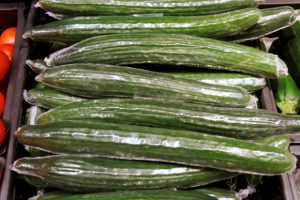The Problem:
The best thing about trying to change the world is that sometimes the world also wants to change as well, the prospect of this begins with a concept. My concept is that if 7 billion people reject an idea, a new idea becomes a reality. This is how movements begin, that’s how movements move.
Plastic consumption, more specifically the use of single use plastic and the very nature of its existence is and the way single use plastic is produced and used In insurmountable quantities, the idea that something unsustainable can be used for seconds and then thrown away and discarded beyond its initial use, gone from mind but not gone from existence. For it to then start it’s near eternal journey in either a land fill or floating around in our seas and oceans, providing unnecessary dangers to marine life. Or maybe it becomes one of the lucky ones, one of the few that gets recycled [9%] that gets reborn, rebranded. Unfortunately, the odds are hugely stacked against this fate, but some will make it, some will be recycled – only to then be faced with those paths again. The environmental group A Plastic Planet dub this process the ‘Plastic Tap’, the process of the constant and unsustainable nature of single use plastic.
What sense does single use plastic consumption have? What possible reason could we have for repeating such a harmful process. We all do it, you do it, I do it. It’s become habitual, a product of our existence a trap. A plastic trap.

As a plastics alternative company that deals solely on effective compostable goods. We have fundamental hurdles to cross. The business I created was to follow strict rules of sustainability a ‘simple’ concept of using no plastic in anything we do. Easy right? Create something in a world where everything is pulling in the same direction, all identifying the nature, surely I was just a small player in a larger team – What came next won’t surprise you, because we all see it, floating around like bottles in the sea.
Did we have hurdles? Of course, every business does. Was it a higher cost? Marginally. Are our products cheap rubbish? Not at all. Are our clients put off by the idea of change? Nope.
So, what was this hurdle?
Habits of a short-time
The biggest hurdle we came up against was the division of habit. Just as our minds were still imprinted with the visible floating plastic and endangered sea life, it divided people who wanted to change, to help, in to two factions. Those that removed all plastic and everything about it immediately, and those that wanted to make gradual changes. Personally, for me, I wanted to be the former – lots did, lots do. But we couldn’t, because those that held the cards, those that held the money the big spenders. They moved like sloths through treacle. They announced the next big thing, pronounced their minor changes then crawled back to their starting blocks. The world was ready to change, it still is. But we are routinely influenced by “convention”
During the last twenty years, we have seen a convenience overlap into laziness, we all do it, we all have lives bus, full of responsibilities. Continuing pressures of daily life. We don’t need, on top of this, an impending environmental crisis. But would they, given the chance without much effort want to change? Most definitely.
So, people who wish to change their habits and help the environment while given the two choices they would more than likely take the zero plastic option. The problem? They are not given these choices.
So these supermarkets, what are they doing?
Very little, allow me to explain. The supermarkets, the big money influences, those that have the lions share of the market, the very companies that have offered us convince and shaped the very way we shop. The very companies that we allowed to control our shopping habits for so long, surely this is the time that they stood up and showed us, with this new environmental understanding allow habits to be changed, influence the way we shop and spear head the changed from the top. Allow a new and improved understanding they have dictated how we have shopped for so long, and we have embraced it. Now it was the perfect time for their influence and understanding to be used for the power of good. For them to stand up and promote something positive, something back for the our years of enslaved loyalty. Did they do this? No, they did not.
Instead we got a drop feed of promises, we got big flashy headlines while I don’t want to name and shame outlets, that’s not my intention. What I do want to do is highlight just how useless they are. While appearing to be doing something, appearing being the abject word.
Last summer every major super market threw their knife on the ground and announced to the world “we are going to be plastic free by xx” We all cheered in collective enthusiasm. While this was a predominant statement a specific large chain of supermarkets, similar statements by similar supermarkets followed.
Specifically? I asked them a very simply question:
“Why are Potatoes housed in paper, yet other fruit and veg are wrapped in plastic? “
What did Aldi UK, Sainsbury’s, Asda, Lidl UK, Tesco and Iceland Foods have to say?
Aldi:
Hi there. Aldi is committed to reducing all forms of waste. That includes cutting, so far as is possible, the amount of packaging and plastic used both by its business – including on products and in our operations and supply chain – and by consumers. Thanks
Tesco:
Hi There, Great question! Here is a link to Our Position on Packaging that is available on our website http://www.tescoplc.com/little-helps…/foundations/packaging/ … . Hope it helps with an answer. TY
Sainsburys:
The packaging protects the product which reduces food waste throughout the supply chain.
Iceland
Hi there, thank you for your message. Please note that all of our own brand packaging is being reviewed as we plan to be plastic free by 2023. Kind regards
Asda and Lidl failed to answer.
[Source: The Paper Concept]

So apart from the obvious arrogance, nothing really separates the ‘Pledges’. Keep in mind at this stage we have seen the nonsensical nature of single use plastic, even if these statements were true, they could have tried to do more, they could have been doing more. The obvious standout is the sword in the stand, the “we will be the completely plastic free by..” a year and single use plastic will be gone from all our stores. Arms in the air saying we will be the best. A year on I see very little that follows that promise.
The very store, I saw and still see plastic cups in the stores, wrapped in plastic, I saw individually wrapped fruit and veg, plastic straws. I saw potatoes, cucumbers and a lettuce wrapped In plastic. And we are praising these people for withdrawing a handful of plastic products? Shouldn’t it be with such a grandiose statement that to remove such nonsense immediately? What possible use could you have, after proclaiming plastic is the enemy, to stock plastic cups wrapped in plastic? These companies have huge spending power, huge amounts of our money and they can’t follow through on the simplest things in pursuit of the profit from removing a plastic covered cucumber?

This for me has been a green light to make changes with actions, when supermarkets talk the hot air they do and as individuals we look at them to start the process, why are they not making it easy for us? Why are they actively choosing to come out with statements and not following them through, even the basic principles of these statements? Why are we being emotionally encouraged to make changes when those that control our shopping habits are not.
I had a client once that resonated with me, she stated that ‘I see all these adverts on tv, they tell me to use fewer plastic bottles etc. I want to, yet I can’t because the supermarkets are not giving me the option, they are not helping it’s so hard to be the change.
And therefore, we will never use plastic; we will start as we mean to go on, so we don’t have to make empty promises or grand statements of no intent. We (and others, we are not alone) are going to do a lot of doing and a lot less talking.

Thanks for sharing excellent information’s. Your site is so cool. I am impressed by the details that you have on this blog. It reveals how nicely you perceive this subject. Bookmarked this website page, will come back for extra articles. You, my pal, ROCK! I found simply the info I already searched all over the place and just could not come across. What a perfect site. Pat Swasey